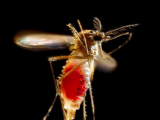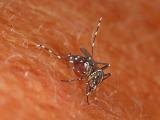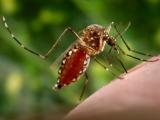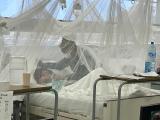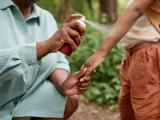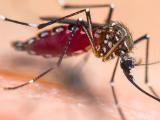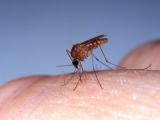Three children recently immunized with Dengvaxia, Sanofi Pasteur's dengue vaccine, are now hospitalized with possible dengue infections, according to a story today in the Manila Times.
In related news, a new study shows that receipt of Dengvaxia may affect the accuracy of dengue diagnostic tests.
The hospitalizations come 1 month after Sanofi recommended Dengvaxia not be used in anyone who is dengue-naive. In recipients without previous dengue infections, the vaccine can lead to more severe illness.
According to Volunteers Against Crime and Corruption (VACC), a non-profit offering free legal assistance to families whose children received Dengvaxia, an 11-, 14-, and 16-year-old were admitted to the Philippine Children's Medical Center on Dec 31 after exhibiting dengue symptoms.
The children received Dengvaxia in the last months of 2017, with the 11-year-old girl completing all three shots included in the vaccination. She and the 16-year-old boy, who are from the same village, complained of abdominal discomfort after getting the shots, the Manila Times reported.
The 14-year-old, a boy, received two vaccine doses in October.
Dante Jimenez, founding chairman of the VACC, said his group is urging the government to release the names of all children who've received Dengvaxia, but he said the government has not responded to his request.
So far, at least two deaths in Filipino children have been linked to Dengvaxia. In both cases, school-aged girls who were dengue-naive developed severe dengue infections shortly after receiving the vaccine.
Dengue testing after Dengvaxia
Meanwhile, a study published in the journal Clinical Infectious Diseases suggests there is a need for new, more specific dengue tests that can accurately identify the difference between dengue infection and antibodies produced by the dengue vaccine.
The study examined febrile illnesses in people from 10 countries in Latin America and Asia where Dengvaxia had been used in the previous 25 months. The researchers identified 1,284 virologically confirmed cases of dengue, and 17,673 other febrile episodes labeled as "probable dengue." Dengue infection was determined using immunoglobulin G (IgG) and IgM assays.
Patients who had the dengue vaccine in the previous 25 months were much more likely to get false-positive dengue diagnoses. There was a 2.2-fold higher proportion of positive samples in the Dengvaxia group than in the controls when using IgM assays, and 3.4-fold higher proportion when using IgG tests.
"Overall positive and negative predictive values were 22.9% and 99.5%, respectively, reflecting the much lower probability of correctly confirming probable dengue in a population including a vaccinated cohort," the authors said.
In an accompanying commentary, Graham Simmons, PhD, and colleagues who were not involved in the study wrote that flavivirus serology is a difficult field because of the cross-reactivity of the viruses and the possibility for re-infection.
See also
Jan 2 Manila Times story
Dec 30 Clin Infect Dis study
Dec 30 Clin Infect Dis commentary


